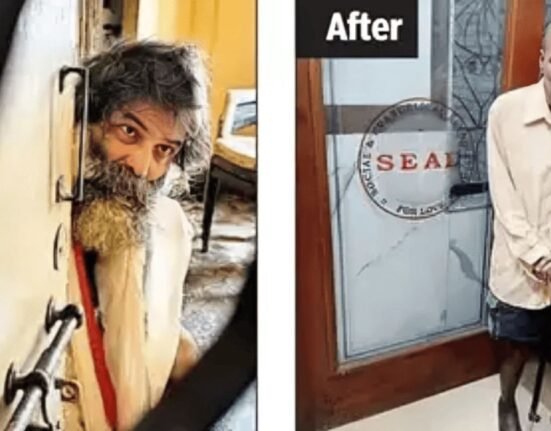A 30-year-old lady has been diagnosed with a severe mental illness. After years of battling her mood swings and manic episodes at a Mental health institute, she was abandoned by her spouse. “My husband abandoned me, and I have no plans to return to him.” She went on to say “This Institute never abandoned me, even after my spouse left. I’ve never felt homeless because of this Institute ” who stayed in the institute till she was stable, said.
Many people with mental illness, or persons with mental illness (PMI), have been abandoned by their families owing to financial difficulties and pressures, and have been labeled as homeless with mental disease. A woman suffering from mental illness who lives at Delhi’s Institute of Human Behavior and Allied Sciences. “For the past 17 years, I’ve been waiting for my brother. I’d like to fly away from here.” She has started and continues to trust that her brother will come to her aid.
According to a psychiatrist, PMI’s family abandons them on trains to an uncertain destination. She recalls that “I had a male client, who is from a well-settled family. But after his parent’s death, his brother became his caregiver who is well settled. But after some years, his brother left him on a train. And I don’t know where he is now or how he is doing”. She highlights the fact that PMIs are mostly abandoned by their family members, irrespective of gender. It happens more with women.
As per a Psychiatrist, “There is no Economic support or security from the government to the families of PMIs. And the medical treatment is expensive”. She also stated that “That’s not always the fault of the family. Due to the lack of economic and financial assistance from the government, PMIs are regarded as a burden.”
PMIs are not only abandoned but the state has no track or data of them. The new Mental Health Act, of 2017 has made it the responsibility of the state to keep PMIs’ dignity and respect. She says that “Community and Families are responsible for the safety of the PMIs and to provide care for Homeless Persons with Mental Illness (HPMI).”
.jpg)
Another 32-year-old caregiver to her 24-year-old sister, who is suffering from Schizophrenia. She became a caregiver after her mother died of covid. She says that “I love my sister and I love to take care of my sister. But it is too overwhelming to take the whole responsibility. It is difficult even though the psychiatrist and government promote family and community support. All I want is more rehabilitation centres at reasonable rates. It might still be overwhelming but that helps me not to feel a burden”.
Caregivers often feel burdened and guilty for not being able to take care of their PMIs. But in the end, it is so difficult for them to even take care of themselves. It seems like they have no opportunities left except abandon even though they feel guilty and heartbroken.
There are just about 9000 psychiatrists in India. Only 0.75 per cent of 1,000,000 individuals have access to a psychiatrist. As the public’s knowledge of mental health issues grows, so does the need for services. More psychiatrists and caretakers are desperately needed. A Mother, who looks after her son, claims that “There aren’t nearly enough rehabilitation facilities in our area. For a daily checkup, I have to go 20-25 kilometres.” “Travelling and a lack of suitable rehabilitation centres, she says, adds to the strain of raising PMIs.”
According to mental health experts When asked about problems faced by PMIs, especially for decision making and financial related issues. She said, “We can approve a legal guardian to make decisions on behalf of PMIs”
- She further explains that as per the RPWD (Rights of Persons with Disabilities) Act which was passed in 2016. Natural guardians are considered Legal guardians.
- But before RPWD came into action, guardianship of PMIs was covered by the Mental Health Act, 1987, chapter 6, section 52. According to this, anyone could apply for guardianship through court.
- In 2016, chapter 6 of the Mental Health Act 1987, was changed and elaborated by covering a wide range of mental illnesses like Visual, Speech, Autism, Neuro-disabilities, Parkinson’s etc.
The Mental Health Act, of 2017 and RPWD Act of 2016 had not mentioned any provision for guardianship. And not what guardianship is supposed to do. It also does not elaborate on the term ‘supported decision making. She says that the PMIs are not allowed to make decisions even though they are capable of making decisions. They’ll need the guardian’s approval.












Leave feedback about this